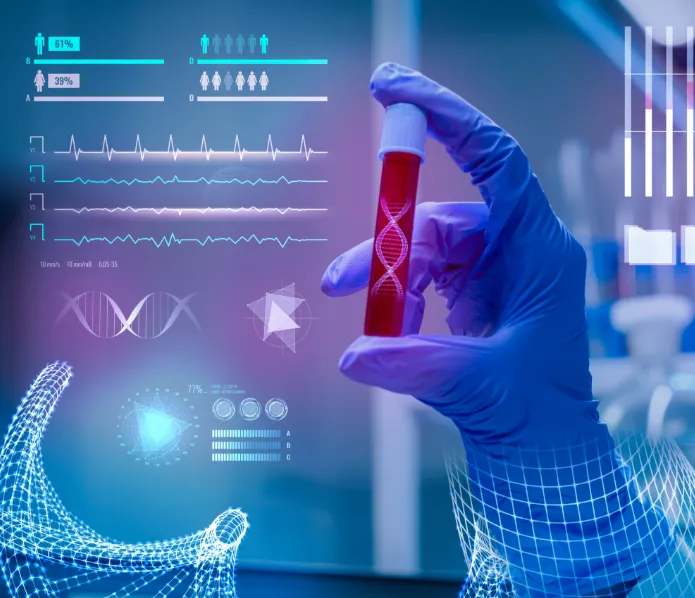Healthcare is entering a new chapter defined by advanced technologies that are no longer just experimental—they’re actively shaping the way doctors, patients, and medical institutions interact. Artificial Intelligence (AI), Augmented Reality (AR), and Mixed Reality (MR) are becoming key drivers of innovation, creating smarter systems that improve treatment, accelerate learning, and increase efficiency across the industry.
Artificial Intelligence: Smarter Decisions, Better Outcomes
AI is playing an increasingly central role in medicine because of its ability to process vast amounts of information and deliver practical insights. Hospitals and research centers are using AI tools to detect diseases earlier, predict patient outcomes, and personalize treatment in ways that weren’t possible before.
- Predictive and Generative AI: Predictive models help forecast health risks and suggest preventive care, while generative AI is being applied to drug discovery by designing new molecular structures. Both are helping speed up research and improve patient care strategies.
- Diagnostics and Imaging: AI systems can analyze scans with remarkable accuracy, supporting doctors in identifying issues such as tumors or fractures earlier and more reliably.
- Operational Support: Beyond treatment, AI is streamlining administrative work, such as managing medical supplies and automating billing, which reduces costs and allows healthcare workers to focus more on patient care.
Recent surveys show that investment in AI technologies for healthcare has surged in recent years, with billions directed toward innovations expected to become mainstream in the near future.
Augmented and Mixed Reality: Training and Treatment Reimagined
AR and MR are changing the way medical professionals train, plan, and treat patients by creating immersive, interactive environments.
- Medical Education: Students and doctors can now practice complex procedures in realistic simulations without risk to patients. Tools like AR headsets overlay real-time data and anatomy visuals, enhancing understanding during practice.
- Surgical Preparation: Surgeons are increasingly turning to 3D models built from patient scans, allowing them to rehearse intricate operations before stepping into the operating room. This reduces uncertainty and improves outcomes.
- Rehabilitation and Therapy: Patients recovering from injuries or dealing with chronic pain are benefiting from AR and VR programs that turn therapy into engaging, gamified exercises, making recovery more effective and less stressful.
Barriers to Widespread Use
While the potential of these technologies is clear, several challenges stand in the way of large-scale adoption.
- High Costs: Advanced hardware and specialized systems can be expensive, making them harder to implement in smaller hospitals or developing regions.
- Data Security: With increasing reliance on digital systems comes heightened risk of data breaches. Safeguarding sensitive medical records requires strong cybersecurity measures.
- Regulation and Compliance: Healthcare is highly regulated, and many organizations are still figuring out how to align AI and AR/MR technologies with evolving legal standards.
- Technical Gaps: Some devices still lack the portability, resolution, or processing power needed for seamless integration into everyday clinical practice.
Looking Ahead: A Connected and Personalized Future
The path forward lies in continued investment, collaboration, and innovation. Healthcare providers are expected to dedicate larger portions of their budgets to AI and immersive technologies over the next few years. Partnerships between hospitals and tech companies will be essential for scaling adoption and ensuring these tools meet real clinical needs.
The rollout of faster networks like 5G and improvements in connected devices will also make it easier to use AR, MR, and AI in real-time scenarios. Whether it’s a surgeon using an augmented view during a delicate operation or a patient receiving AI-guided rehabilitation exercises at home, connectivity will play a key role in enabling seamless use of these technologies.
Conclusion
AI, AR, and MR are no longer distant possibilities—they are already reshaping healthcare in profound ways. From accelerating diagnoses and personalizing treatments to revolutionizing medical training and patient rehabilitation, these technologies promise a future where healthcare is more precise, accessible, and efficient.
Challenges such as cost, security, and regulatory hurdles remain, but with thoughtful integration and collaboration, the potential benefits are immense. The healthcare industry is on the cusp of a transformation that could redefine patient care for decades to come, making medicine not only smarter but also more human-centered.
